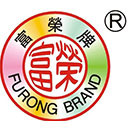What Are Fermented Black Beans?
Fermented black beans, also known as Douchi in Chinese cuisine, are one of the oldest and most distinctive fermented foods in Asia. They are made from black soybeans that have been salted, steamed, and fermented to create a savory, rich flavor known as umami. These beans are small, wrinkled, and dark in appearance, carrying a complex aroma that combines saltiness, sweetness, and a hint of bitterness. For centuries, they have been a vital seasoning in traditional Chinese cooking, elevating the flavor of meat, fish, tofu, and vegetables.
The Process of Fermentation
The process begins with selecting high-quality black soybeans. After soaking, they are steamed until soft and mixed with salt and a specific kind of mold, usually Aspergillus oryzae or Mucor species. The beans are then placed in a warm environment for several days, allowing the microorganisms to break down proteins and carbohydrates into amino acids and sugars. This fermentation generates the deep, complex flavor that defines fermented black beans.
After fermentation, the beans are sun-dried and stored, developing an even richer taste over time. Some are further mixed with ginger, garlic, or chili to produce different regional varieties. The entire process can take weeks to months, depending on humidity and temperature, but the result is a versatile and intensely aromatic ingredient.
Flavor and Nutritional Profile
Fermented black beans stand out because of their high glutamate content, which contributes to a powerful umami flavor similar to that found in soy sauce or miso. Their taste is salty yet layered with earthy and slightly sweet undertones. When added to dishes, even a small amount can transform the flavor balance, creating depth and savoriness.
Nutritionally, they are a source of plant-based protein, minerals, and antioxidants. The fermentation process enhances nutrient absorption and introduces beneficial enzymes that aid digestion. They are also low in fat and can be used as an alternative seasoning to reduce the need for excessive salt or artificial flavorings.
| Nutrient | Approximate Value per 100g |
|---|---|
| Protein | 14–18 g |
| Sodium | 3800 mg |
| Fiber | 5 g |
| Iron | 4 mg |
| Energy | 230 kcal |
The high sodium level is what preserves the beans naturally, so they should be used sparingly to balance saltiness in cooking.
Culinary Uses
Fermented black beans are mainly used as a seasoning or condiment rather than eaten directly. They can be rinsed briefly to reduce saltiness, then mashed or chopped before adding to recipes. When sautéed with garlic, chili, and oil, they form the base for the famous black bean sauce, widely used in Chinese restaurants around the world.
Popular dishes include stir-fried beef with black bean sauce, steamed fish with fermented black beans, and mapo tofu. The beans add a deep umami tone that enhances both meat and vegetarian recipes. Even a teaspoon mixed into marinades or stews can intensify aroma and balance the taste profile.
Fermented black beans are also excellent for vegetable stir-fries. They complement bell peppers, eggplants, and green beans, bringing a satisfying savory kick. In recent years, chefs have begun experimenting with them in fusion dishes—incorporating them into pasta sauces, burgers, and even dressings to add Asian complexity to Western recipes.
Storage and Shelf Life
Proper storage is essential to maintain the flavor and quality of fermented black beans. They should be kept in a sealed container in a cool, dry place, away from direct sunlight. Once opened, refrigeration helps prevent mold and keeps them fresh for several months. It’s also common to store them in oil or rice wine, which extends shelf life and enhances aroma.
Because of their concentrated flavor, fermented black beans remain usable even in small quantities for long periods, making them a cost-effective seasoning for both households and restaurants.
Global Appeal and Modern Applications
Beyond traditional kitchens, fermented black beans have gained popularity among chefs and food manufacturers worldwide. Their natural fermentation and plant origin align with modern trends toward clean-label, flavor-intense condiments. They can be blended into sauces, instant noodles, and frozen meal kits to enrich flavor without adding artificial enhancers.
In food production, fermented black bean paste is often used in ready-to-eat sauces and packaged Asian meals for export. The controlled fermentation technology ensures consistent quality and safety, allowing this ancient ingredient to meet today’s international standards.
Reliable Supplier of Fermented Black Beans
For global buyers seeking authentic and high-quality fermented black beans, HONGSING stands out as a professional manufacturer and exporter of traditional Asian food ingredients. With strict control over raw materials, advanced fermentation facilities, and hygienic packaging processes, HONGSING ensures that every batch of fermented black beans retains its natural flavor and aroma. The company’s experience in supplying OEM and wholesale clients worldwide makes it a reliable partner for food brands and distributors looking for stable, large-scale production capacity and consistent quality.
In summary, fermented black beans are much more than a condiment—they are a bridge between tradition and modern cuisine. Their deep umami character continues to inspire chefs, enrich recipes, and connect global palates with the authentic taste of Asian fermentation culture.
Previous: How to Use Fermented Black Beans?

